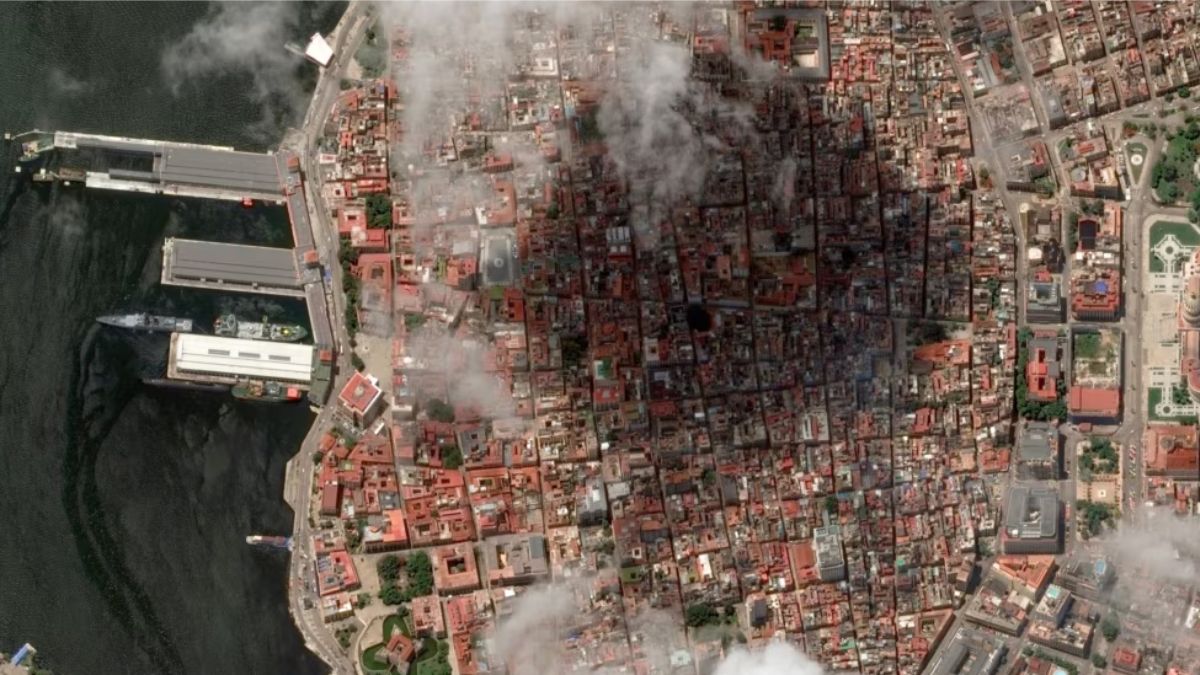US based center for international studies have released new satellite images of Cuba to support their claim saying the country is upgrading its intelligence capabilities in 4 military bases with possible links to China.
It has been allehed that Cuba is potentially letting Chinese have these bases to use it for spying on the United States.
Washington-based Center for Strategic and International Studies on Tuesday published this report, according tp which, these images were captured between March and April.
They indicate recent construction activities at three sites near Havana and ongoing work at a previously undisclosed location not far from the US naval base at Guantanamo Bay.
The report notes the difficulty in pinpointing specific uses of these upgrades without access to classified information. However, it indicates significant developments in satellite monitoring equipment at sites like Bejucal and Calabazar, particularly noteworthy given Cuba’s lack of its own satellites or space program.
Bejucal, historically known for storing nuclear weapons for the Soviet Union during the 1962 Cuban missile crisis, is the largest site among the list, suspected of monitoring electronic communications for China. Recent satellite imagery suggests extensive updates at Bejucal, including new enclosures for electronic antennas.
Sites near Havana, namely Wajay and Calabazar, have also witnessed expansion, with analysts noting the installation of antennae, radar dishes, and other equipment possibly used for satellite monitoring.
Impact Shorts
More ShortsThe fourth site, El Salao, appears to still be under construction. Located near Guantanamo Bay, its presence and ongoing development raise security concerns for the US, as per the report.
According to CSIS analysts, satellite imagery indicates progress on an antenna array at El Salao, capable of tracking signals over vast distances, up to 15,000 kilometers.
The US Office of the Director of National Intelligence declined to comment on the CSIS report. However, previous reports have suggested China’s financial investments in Cuban facilities aimed at enhancing intelligence capabilities.
In response, Pentagon press secretary Major General Pat Ryder assured that the US remains vigilant, stating, “We’re confident that we can continue to meet our security commitments.”
China dismissed the CSIS findings, with the Chinese Embassy in Washington calling them baseless accusations. Cuban officials similarly refuted the claims, dismissing them as unfounded.
“The U.S. side has repeatedly hyped-up China’s establishment of spy bases or conducting surveillance activities in Cuba,” Liu Pengyu told VOA in an email.
“The U.S. should immediately stop its malicious smearing of China,” Liu said, adding, “The U.S. is no doubt the leading power in terms of eavesdropping and does not even spare its Allies [sic].”
Cuba has also belittled the report calling it just a write up in the The Wall Street Journal.
“Without citing a verifiable source or showing evidence, it seeks to scare the public with legends about Chinese military bases that do not exist and no one has seen,” according to a post by Cuban Deputy Foreign Minister Carlos Fernandez de Cossio on the X social media platform.
The CSIS report speculates that these monitoring stations could provide China with crucial data on US military activities, including exercises, missile tests, and satellite communications over sensitive military sites.
)